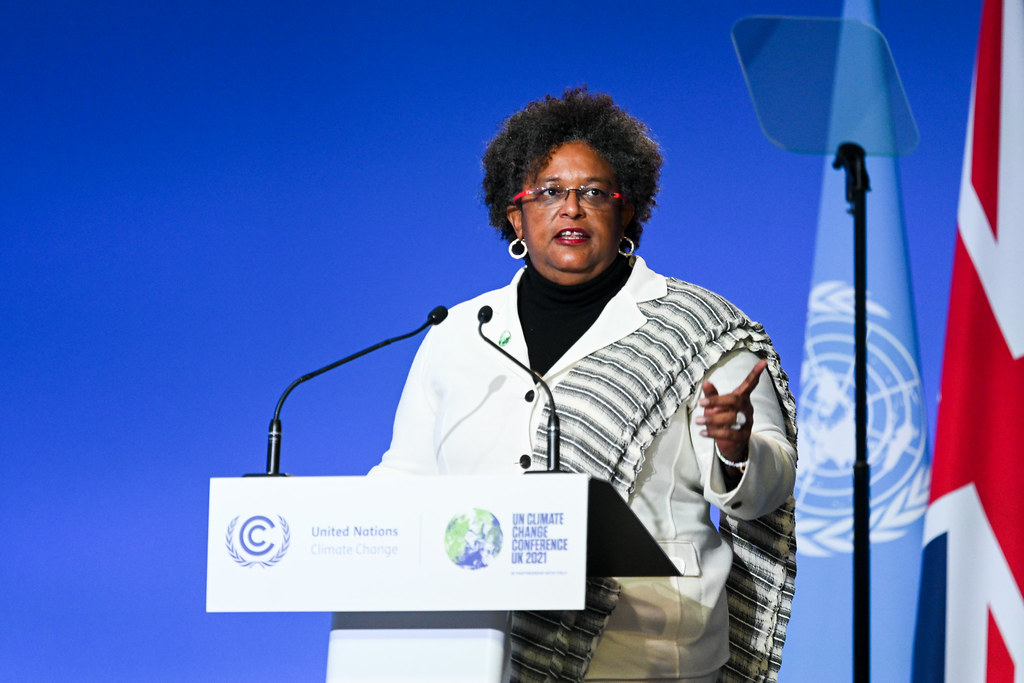Paris, France, June 23: Barbados Prime Minister Mia Mottley emerged as a formidable advocate for reshaping the role of global financial institutions as she addressed over 50 world leaders at the Summit for a New Global Financial Pact in France’s capital, Paris.
The high-stakes meeting, hosted by France on June 22 and 23, aimed to tackle the pressing challenge of bridging the climate finance gap for developing nations.
Speaking at the summit, Prime Minister Mottley expressed her concerns and hopes, stating, “I come with a heavy heart but with hope.”
She emphasized the need for a fundamental transformation of the international financial order to effectively address the intertwined goals of poverty alleviation, emission reduction, and environmental protection.
The urgency of the matter was underscored by the United Nations’ estimation that developing countries, excluding China, require a staggering $2.4 trillion (€2.2tn) annually in climate finance and investments by 2030.
Regrettably, the total global aid expenditure falls significantly short of this figure, leaving developing nations struggling to mobilize resources for mitigation and adaptation projects.
Having endured broken promises on climate finance in the past, developing countries now seek tangible progress from the Paris summit.
Prime Minister Mottley described the event as an “inflection moment” for global finance.
Her country, Barbados, presented a comprehensive plan for fixing the global financial system, facilitating clean energy investments, and strengthening resilience to climate impacts.
One of the key proposals put forward by Barbados is the inclusion of a clause in debt agreements that would enable countries to pause repayments following climate-related shocks.
These innovative ideas aim to address the specific challenges faced by small island nations, which are particularly vulnerable to climate change impacts.
Prime Minister Mottley, an ardent advocate for reform, outlined her ambitious “Bridgetown Initiative” during her opening speech at the summit. The initiative aims to reduce borrowing costs for green investments in impoverished countries.
However, critics caution that some of the more progressive elements of the Bridgetown Initiative have already been diluted.
Acknowledging the need for reform, renowned economist Jayati Ghosh stated, “Everybody agrees that international financial architecture needs reform. However, actual progress in this area has been stagnant.”
As the Paris summit progresses, the world watches eagerly to see how these ideas will be received and whether concrete actions will be taken.
Amidst these challenges, Prime Minister Mottley’s leadership shines a ray of hope for small island nations and the developing world at large.






